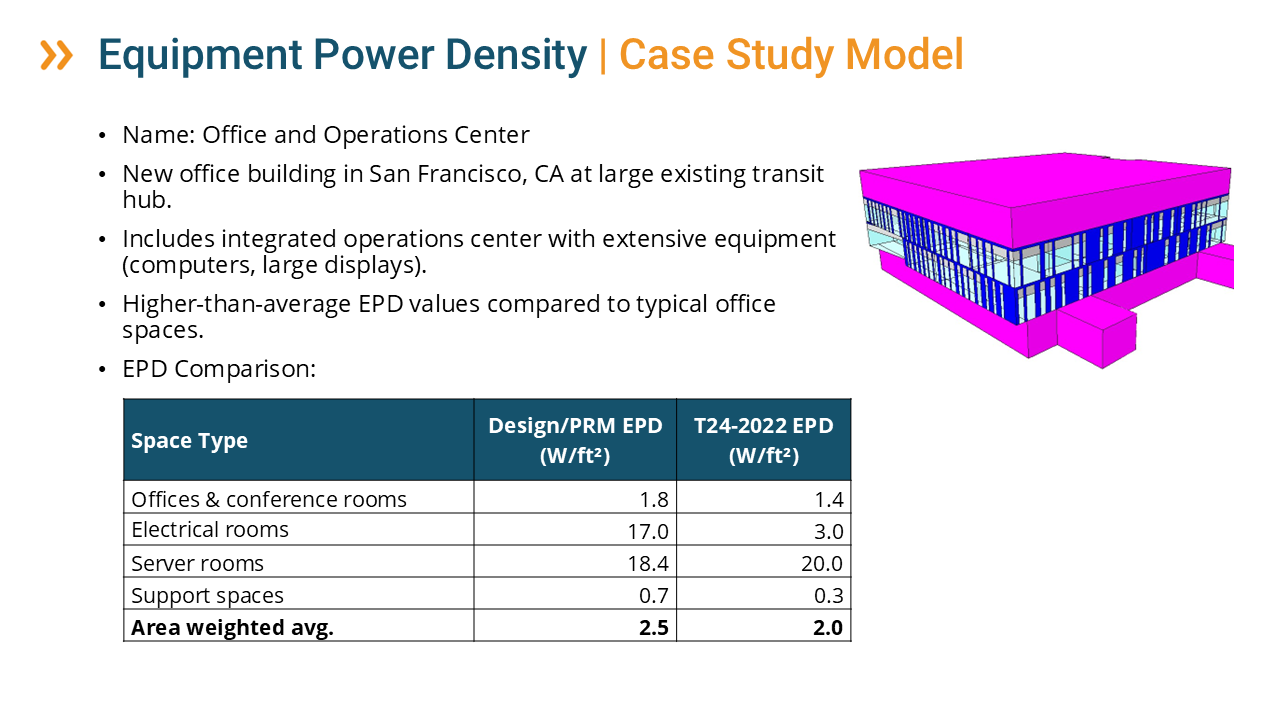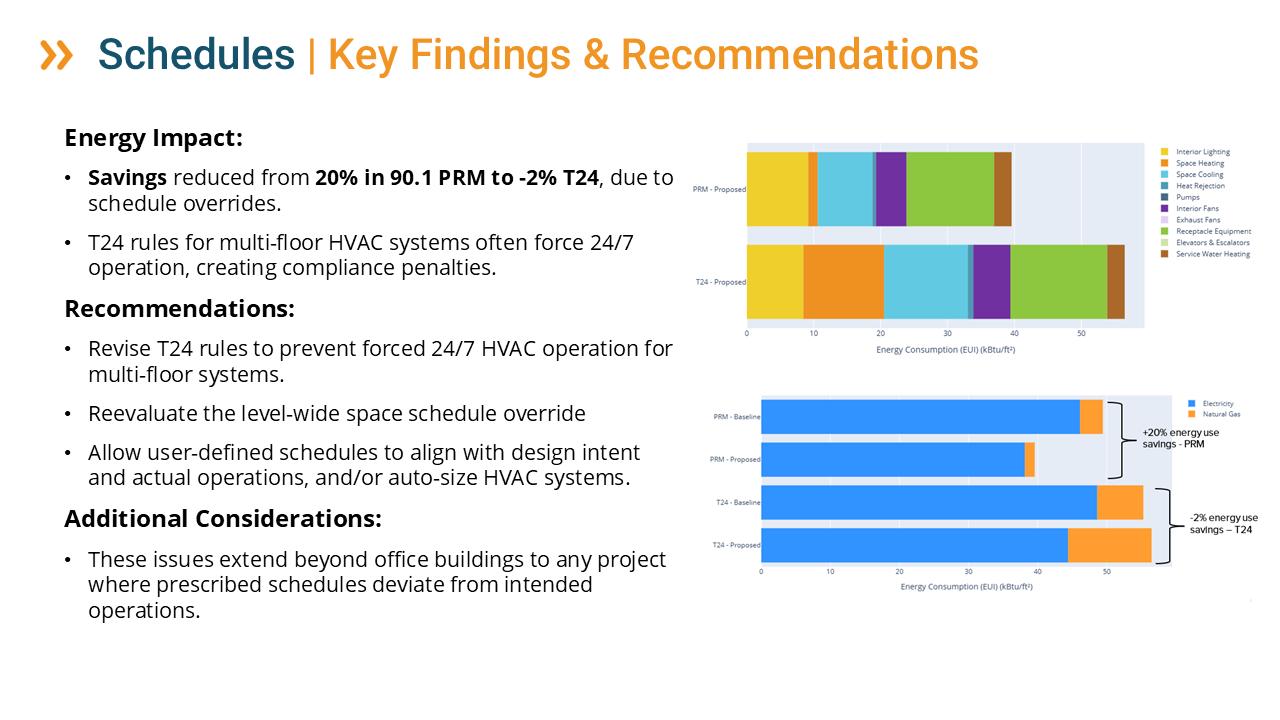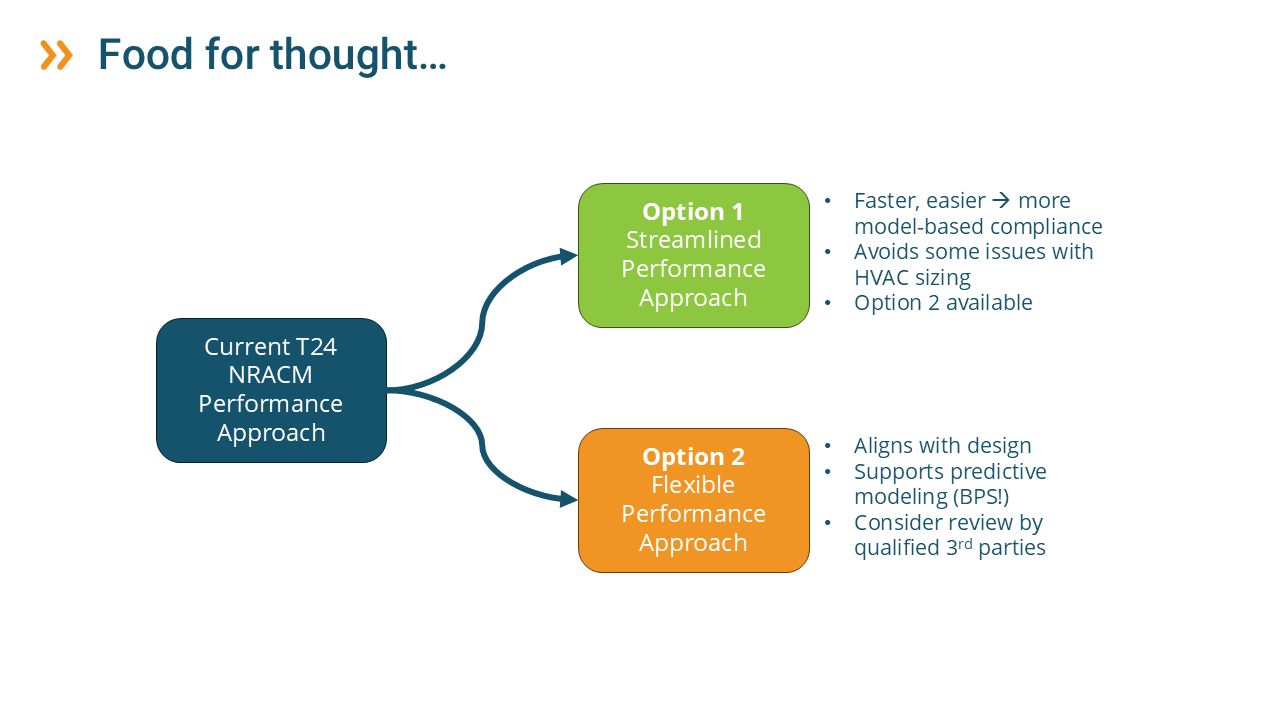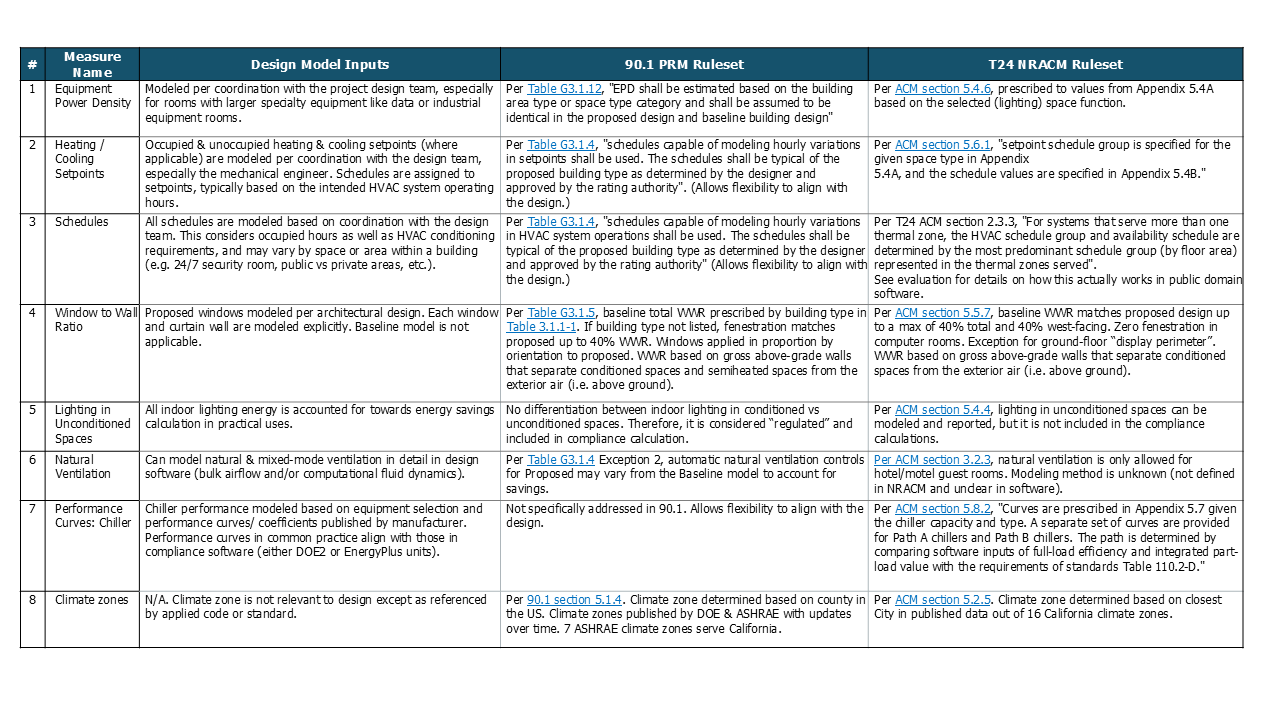Zero Envy Helps Chart a Simpler Path for California Energy Efficiency
California's energy code, Title 24, is known for being one of the most stringent in the nation. While this pushes for high-performance buildings, the process of proving compliance can be complex and time-consuming. Zero Envy was proud to partner with the CalBEM organization, with funding from Southern California Edison, to explore ways to make this process smoother.
Our team took a close look at how California's performance-based approach compares to a different method used by ASHRAE Standard 90.1, a widely respected energy efficiency standard. We used real-world building projects to analyze the differences. What we found is that ASHRAE 90.1’s Performance Rating Method (PRM) offers more flexibility, especially in how energy models are created and used.
Currently, T24 often requires energy modelers to create separate models: one to help with the building's design, and another just to prove it meets code. This is because T24 has very specific rules (detailed in the Nonresidential ACM) about things like temperature settings and operating schedules, which can force the compliance model to deviate from the actual design. This can introduce error in results which can, in turn, cause compliance issues such as unmet load hours or failure to comply
Our research points toward a better way. We believe that California can streamline its compliance process by:
Simplifying the main software used to demonstrate compliance, and
Introducing a new, more flexible approach where the design model (and software, operational assumptions, and advanced systems) can be used for compliance.
This could save time and money for building owners and designers, and ultimately lead to even more energy-efficient buildings. To ensure accuracy, these more flexible models could be reviewed by qualified experts, adding another layer of quality control.
Want to dive deeper into our research and findings? You can download the full report here.
You can also check out a presentation recorded summarizing the project on YouTube here.
We at Zero Envy are committed to using our expertise to advance energy efficiency and create a more sustainable built environment - through “design” energy modeling, energy code compliance modeling and much more!
Acknowledgements:
Project funded by Southern California Edison.
Project managed by 2050 Partners through CalBEM.
Project team: Greg Collins and Bhakti Dave at Zero Envy, and Panos Bakos at Atelier Ten.




















